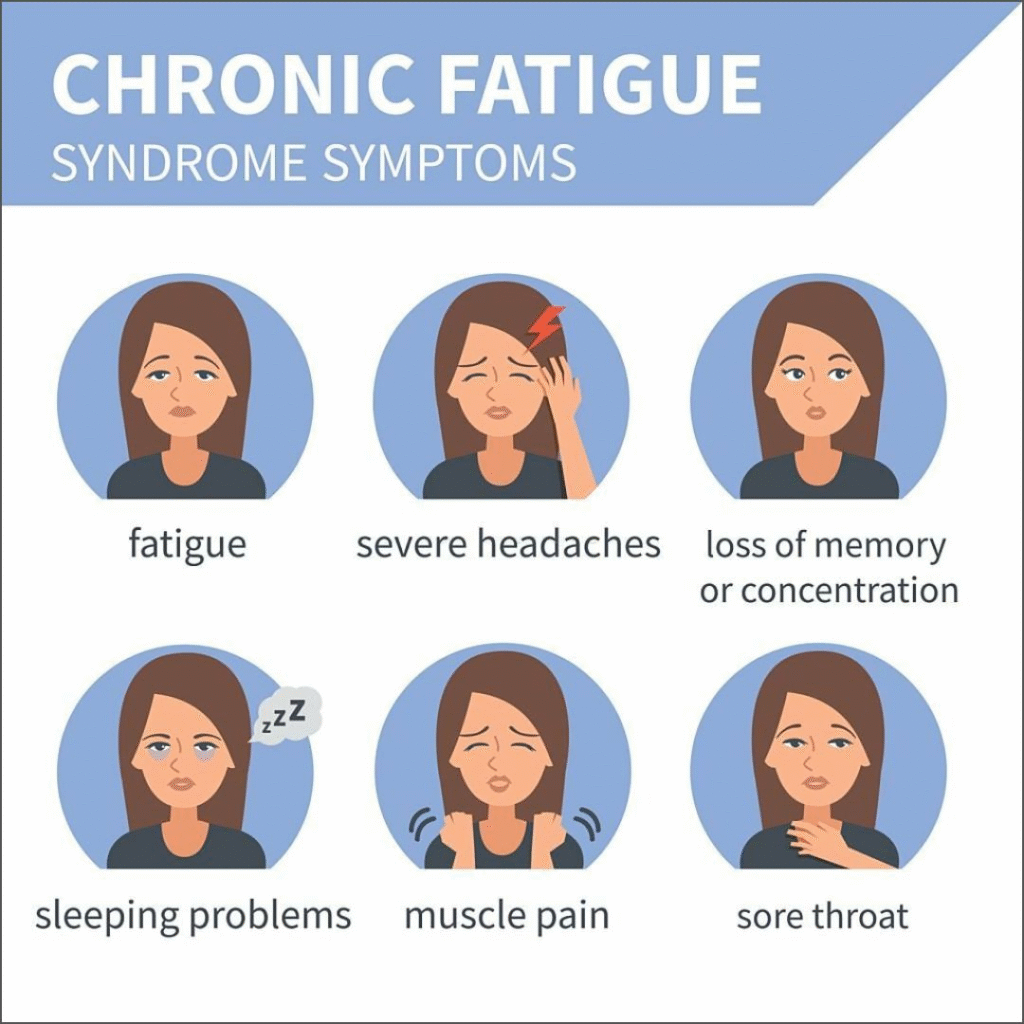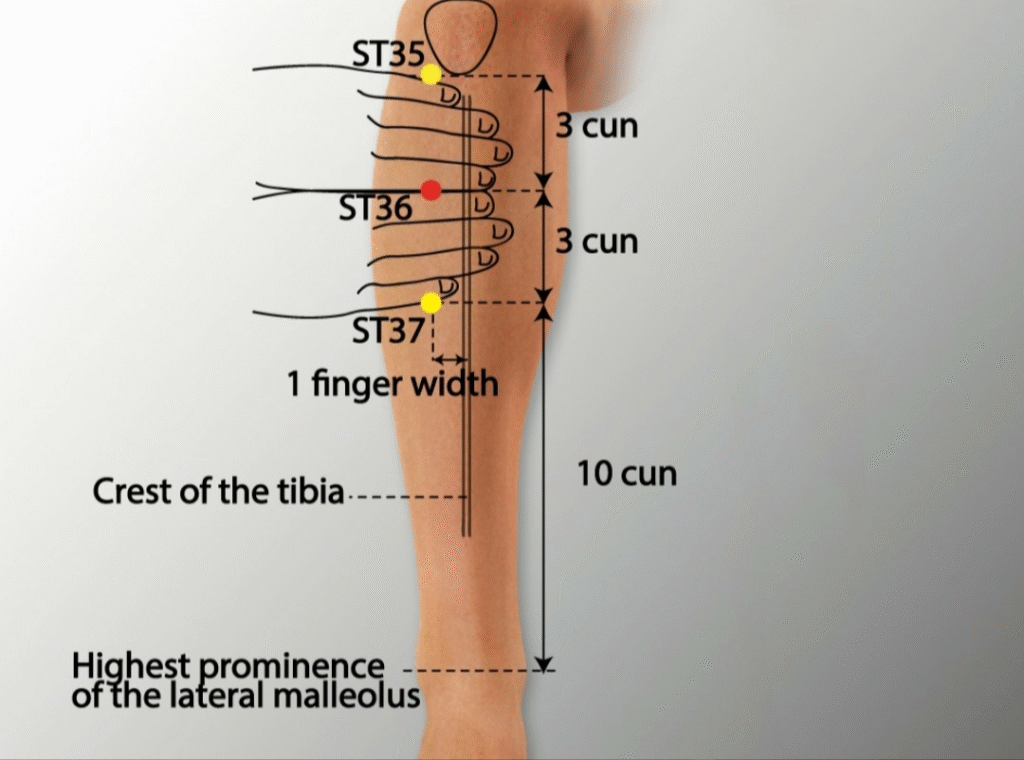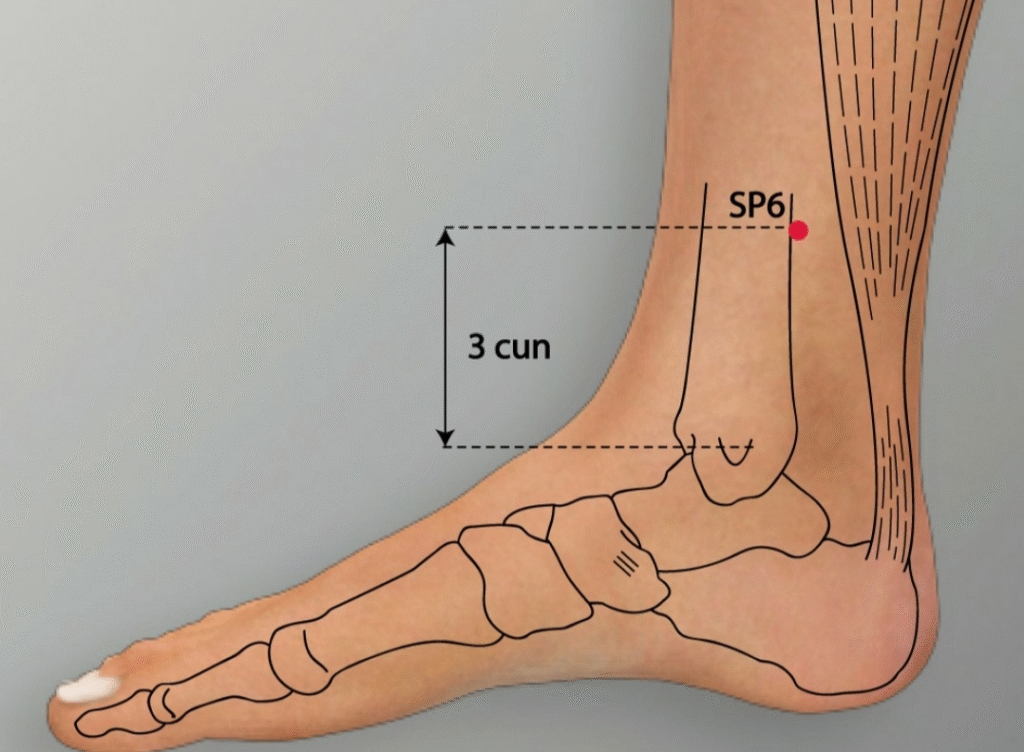Chronic Fatigue Syndrome (CFS), also known as Myalgic Encephalomyelitis (ME), is a complex and debilitating condition characterized by profound fatigue that persists for at least six months and is not alleviated by rest. This condition affects millions worldwide, with estimates suggesting that up to 2.5% of the population may experience CFS at some point. Unlike typical tiredness, the fatigue associated with CFS is overwhelming, often accompanied by a range of symptoms that significantly impair daily functioning. For those seeking relief, acupuncture—a traditional oriental medicine practice—has emerged as a promising complementary therapy. This article explores the definition of CFS-related pain, the effectiveness of acupuncture, and the key acupoints used in its treatment.
What is Chronic Fatigue Syndrome?
CFS is a multifaceted disorder with no single known cause. It is diagnosed based on a combination of symptoms and the exclusion of other medical conditions. According to the Centers for Disease Control and Prevention (CDC), key diagnostic criteria include:
- Severe Fatigue: Persistent exhaustion lasting six months or more, not improved by rest.
- Post-Exertional Malaise (PEM): Worsening of symptoms after physical or mental exertion, often described as a “crash.”
- Unrefreshing Sleep: Waking up feeling unrested despite adequate sleep duration.
- Cognitive Impairment: Commonly referred to as “brain fog,” including difficulties with memory, concentration, and processing information.
- Orthostatic Intolerance: Dizziness or lightheadedness when standing or sitting upright.
Additional symptoms may include muscle and joint pain, headaches, sore throat, tender lymph nodes, and gastrointestinal issues. The unpredictable nature of CFS makes it challenging to manage, often leading individuals to explore alternative treatments like acupuncture.

Understanding Pain in Chronic Fatigue Syndrome
Pain is a common and debilitating symptom of CFS, affecting up to 80% of patients. Unlike acute pain caused by injury, CFS-related pain is chronic, diffuse, and often resistant to conventional treatments. Below, we delve into the types of pain associated with CFS and their impact on patients’ lives.
Types of Pain in CFS
Myalgia (Muscle Pain):
- Myalgia is a hallmark of CFS, characterized by widespread muscle aches and tenderness. Patients often describe this pain as a deep, aching sensation that may worsen with activity or stress.
- The pain may be localized to specific muscle groups or spread across the body, resembling fibromyalgia in its distribution.
- Myalgia in CFS is thought to result from inflammation, impaired energy metabolism in muscles, or central nervous system dysfunction.

Joint Pain:
- Joint pain in CFS is typically non-inflammatory, meaning it is not accompanied by swelling or redness. Patients report stiffness and discomfort in joints such as the knees, hips, and shoulders.
- This pain may fluctuate in intensity and is often exacerbated by physical exertion or changes in weather.
Headaches:
- Many CFS patients experience chronic headaches, ranging from tension-type headaches to migraines. These headaches may be triggered by stress, poor sleep, or sensory overload.
- The pain can be throbbing, sharp, or dull and may be accompanied by sensitivity to light and sound.
Neuropathic Pain:
- Some patients report neuropathic symptoms, such as burning, tingling, or shooting pains. These sensations may stem from nervous system dysregulation, a common feature of CFS.

Impact of Pain on CFS Patients
The chronic pain associated with CFS profoundly affects quality of life. It can limit mobility, disrupt sleep, and contribute to emotional distress, including anxiety and depression. The unpredictable nature of the pain—flaring up without warning—makes it difficult for patients to plan daily activities or maintain employment. Conventional pain management strategies, such as nonsteroidal anti-inflammatory drugs (NSAIDs) or opioids, often provide limited relief and may cause side effects, prompting many to seek alternative therapies like acupuncture.
Acupuncture for Chronic Fatigue Syndrome
Acupuncture is a key component of Traditional Oriental Medicine (TOM) that involves the insertion of fine, sterile needles into specific points on the body, known as acupoints, to restore balance and promote healing. According to TOM principles, health is maintained by the balanced flow of vital energy through meridians, or energy pathways. Disruptions in energy flow are believed to cause illness, and acupuncture aims to correct these imbalances.
In Western medicine, acupuncture is thought to stimulate the nervous system, release endorphins, and modulate pain signals. It has gained recognition as a complementary therapy for various chronic conditions, including pain, fatigue, and neurological disorders. For CFS, acupuncture offers a holistic approach, addressing both physical and emotional symptoms.
Effectiveness of Acupuncture for Chronic Fatigue Syndrome
Numerous studies have investigated acupuncture’s potential benefits for CFS, with promising results. Below, we explore the evidence supporting its effectiveness, focusing on pain relief, fatigue reduction, and overall quality of life.
Scientific Evidence
Pain Reduction:
A 2017 systematic review published in the Journal of Alternative and Complementary Medicine analyzed multiple studies on acupuncture for CFS. The review found that acupuncture significantly reduced muscle and joint pain in CFS patients compared to control groups receiving sham acupuncture or standard care.
Acupuncture is believed to alleviate pain by stimulating the release of endorphins, the body’s natural painkillers, and by modulating pain pathways in the central nervous system.
Patients often report immediate pain relief following acupuncture sessions, with cumulative benefits over multiple treatments.
Fatigue Improvement:
A 2019 randomized controlled trial (RCT) in Acupuncture in Medicine demonstrated that acupuncture, when combined with moxibustion (a technique involving burning mugwort near acupoints), significantly reduced fatigue severity in CFS patients after 4–8 weeks of treatment.
Acupuncture may enhance energy levels by improving mitochondrial function and reducing oxidative stress, both of which are implicated in CFS pathophysiology.
Improved Sleep and Cognitive Function:
Acupuncture has been shown to improve sleep quality, a critical factor for CFS patients who experience unrefreshing sleep. A 2020 study in Evidence-Based Complementary and Alternative Medicine found that acupuncture improved sleep efficiency and reduced daytime fatigue.
By calming the nervous system, acupuncture may also alleviate “brain fog,” enhancing cognitive clarity and focus.
Psychological Benefits:
CFS is often accompanied by anxiety and depression due to chronic illness burden. Acupuncture has been shown to reduce psychological distress by regulating the hypothalamic-pituitary-adrenal (HPA) axis, which controls stress responses.
A 2021 meta-analysis in Frontiers in Neurology concluded that acupuncture improved mood and reduced anxiety scores in CFS patients, contributing to better overall well-being.

How Acupuncture Works for CFS
Acupuncture’s mechanisms of action for CFS are multifaceted:
- Neurotransmitter Regulation: Acupuncture stimulates the release of serotonin, dopamine, and endorphins, which can improve mood, reduce pain, and enhance energy.
- Immune Modulation: Some studies suggest that acupuncture may regulate immune function, potentially addressing the low-grade inflammation seen in CFS.
- Autonomic Nervous System Balance: Acupuncture may normalize the balance between the sympathetic and parasympathetic nervous systems, reducing symptoms like orthostatic intolerance and fatigue.
- Improved Blood Flow: By promoting circulation, acupuncture may enhance oxygen and nutrient delivery to muscles, reducing myalgia and stiffness.
While the evidence is promising, some limitations exist:
- Study Size: Many studies on acupuncture for CFS involve small sample sizes, limiting their generalizability.
- Heterogeneity: Variations in acupuncture protocols (e.g., needle placement, session frequency) make it challenging to standardize findings.
- Placebo Effect: Sham acupuncture, used as a control in some studies, may produce placebo effects, complicating the assessment of true efficacy.
Despite these limitations, the growing body of research supports acupuncture as a safe and effective complementary therapy for CFS, particularly for pain and fatigue management.
Key Acupoints for Treating Chronic Fatigue Syndrome
In TOM, specific acupoints are selected based on the patient’s symptoms and underlying imbalances. For CFS, acupoints are chosen to tonify Energy, nourish blood, alleviate pain, and calm the mind. Below are some of the most commonly used acupoints for CFS, along with their locations and therapeutic effects.
1. Zusanli (ST36)
Location: On the lower leg, about four finger widths below the kneecap and one finger width lateral to the shinbone.
Therapeutic Effects:
- Strengthens Energy and boosts energy levels, making it ideal for addressing fatigue.
- Enhances digestion, which is often impaired in CFS patients with gastrointestinal symptoms.
- Reduces muscle pain and stiffness by promoting blood circulation.
Application: ST36 is frequently used in CFS protocols due to its role in tonifying the body’s energy reserves. It is often stimulated with needles or moxibustion for enhanced effects.

2. Sanyinjiao (SP6)
Location: On the inner lower leg, about four finger widths above the ankle bone, just behind the shinbone.
Therapeutic Effects:
- Nourishes Yin and blood, addressing symptoms like dryness, insomnia, and muscle weakness.
- Calms the mind, reducing anxiety and promoting restful sleep.
- Alleviates pain, particularly in the lower body, and supports hormonal balance.
Application: SP6 is a versatile acupoint used for both physical and emotional symptoms in CFS.

3. Baihui (GV20)
Location: At the top of the head, at the midpoint of the line connecting the tops of the ears.
Therapeutic Effects:
- Clears the mind and alleviates “brain fog,” improving cognitive function.
- Uplifts mood and reduces depressive symptoms by regulating the central nervous system.
- Enhances overall energy flow, addressing fatigue and lethargy.
Application: GV20 is often used to address cognitive and psychological symptoms in CFS, particularly when patients report mental fatigue.

4. Guanyuan (CV4)
Location: On the midline of the abdomen, about three finger widths below the navel.
Therapeutic Effects:
- Strengthens the body’s foundational energy (Yuan Energy), combating profound fatigue.
- Supports immune function and overall vitality.
- Reduces lower back pain and pelvic discomfort, common in CFS.
Application: CV4 is frequently combined with moxibustion to warm and tonify the body’s core energy.

5. Shenmen (HT7)
Location: On the inner wrist, in the crease near the pinky side, just above the pisiform bone.
Therapeutic Effects:
- Calms the mind and heart, reducing anxiety, palpitations, and insomnia.
- Alleviates neuropathic pain and promotes relaxation.
- Supports emotional balance, addressing the psychological burden of CFS.
Application: HT7 is a key point for managing stress-related symptoms and improving sleep quality.

6. Taichong (LR3)
Location: On the top of the foot, in the depression between the first and second metatarsal bones.
Therapeutic Effects:
- Soothes the liver and regulates Energy flow, reducing irritability and emotional stress.
- Alleviates headaches and muscle tension.
- Promotes smooth energy circulation, addressing fatigue and pain.
Application: LR3 is used to balance emotional and physical symptoms, particularly in patients with stress-induced flares.

Treatment Protocols
Acupuncture treatments for CFS are typically tailored to the individual, with practitioners selecting acupoints based on the patient’s specific symptoms and TOM diagnosis (e.g., Energy deficiency, Yin deficiency, or blood stagnation). A typical protocol involves:
Frequency: 1–2 sessions per week for 6–12 weeks, with maintenance sessions thereafter.
Duration: Each session lasts 20–40 minutes, depending on the patient’s tolerance.
Techniques: In addition to needle insertion, practitioners may use:
- Moxibustion: Applying heat to acupoints to enhance energy flow.
- Electroacupuncture: Using mild electrical currents to stimulate acupoints, particularly for pain relief.
- Cupping: Applying suction cups to improve circulation and reduce muscle tension.
Benefits of Acupuncture Beyond Symptom Relief
In addition to addressing pain and fatigue, acupuncture offers several benefits for CFS patients:
- Holistic Approach: Acupuncture treats the whole person, addressing physical, emotional, and energetic imbalances.
- Minimal Side Effects: Unlike medications, acupuncture is generally safe when performed by a licensed practitioner, with minimal risks (e.g., mild bruising or soreness).
- Complementary Therapy: Acupuncture can be combined with other treatments, such as cognitive-behavioral therapy (CBT), graded exercise therapy (GET), or dietary changes, to enhance overall outcomes.
- Personalized Care: Treatments are customized to the patient’s unique symptoms, ensuring a tailored approach.
Considerations Before Starting Acupuncture
Before pursuing acupuncture for CFS, consider the following:
- Find a Qualified Practitioner: Seek a licensed acupuncturist with experience in treating chronic conditions. In the U.S., look for practitioners certified by the National Certification Commission for Acupuncture and Oriental Medicine (NCCAOM).
- Discuss with Your Healthcare Provider: Ensure acupuncture is safe for you, especially if you have other medical conditions or are taking medications.
- Set Realistic Expectations: Acupuncture is not a cure for CFS but can significantly improve symptoms and quality of life. Results may vary, and multiple sessions are often needed.

Integrating Acupuncture with Lifestyle Changes
To maximize the benefits of acupuncture, CFS patients should consider complementary lifestyle changes:
- Pacing: Practice energy conservation by balancing activity and rest to avoid PEM.
- Nutrition: Eat a balanced diet rich in anti-inflammatory foods, such as fruits, vegetables, and omega-3 fatty acids, to support overall health.
- Sleep Hygiene: Establish a consistent sleep routine to improve sleep quality.
- Stress Management: Incorporate mindfulness, meditation, or gentle yoga to reduce stress and support emotional well-being.
Conclusion
Chronic Fatigue Syndrome is a challenging condition that affects millions, with pain and fatigue significantly impacting quality of life. Acupuncture offers a promising complementary therapy, with research supporting its effectiveness in reducing pain, improving energy levels, enhancing sleep, and alleviating psychological distress. Key acupoints like Zusanli (ST36), Sanyinjiao (SP6), and Baihui (GV20) target the core symptoms of CFS, providing a holistic approach to symptom management. By working with a qualified practitioner and integrating acupuncture with lifestyle changes, individuals with CFS can find meaningful relief and improve their overall well-being.
If you’re considering acupuncture for CFS, consult with a licensed acupuncturist and your healthcare provider to develop a personalized treatment plan. With its minimal side effects and evidence-based benefits, acupuncture may be a valuable tool in your journey toward managing chronic fatigue syndrome.
Fuji Wellness:
- Address: 132-0031 Matsushima 1-chome, 21-14, Tokyo, Japan
- Contact: Click here
- Email: sunnyphamsensei@gmail.com
